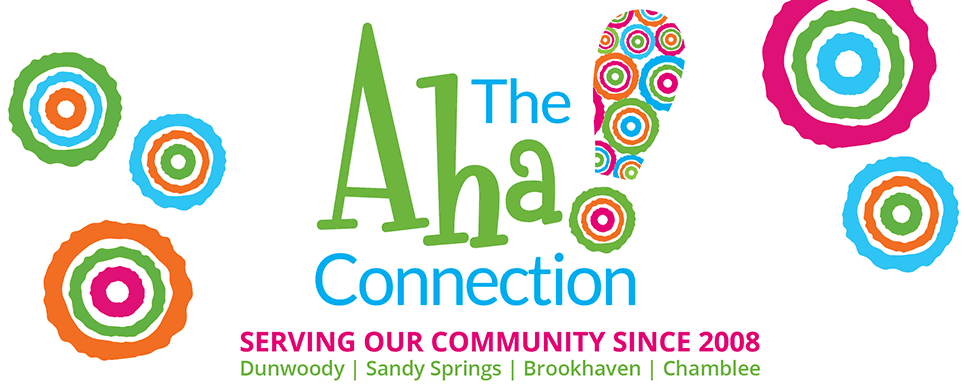 by Erin Mills MSW, LCSW of Atlanta Specialized Care for The Aha! Connection
by Erin Mills MSW, LCSW of Atlanta Specialized Care for The Aha! Connection
Anyone who has experienced test-taking anxiety knows how debilitating it can be! And anyone whose child experiences test-taking anxiety knows how stressful and heartbreaking it is to watch. Experiencing anxiety when taking tests or quizzes occurs in 40% of students of all ages and negatively impacts performance and overall well-being. Test-taking anxiety can look like sweating, trembling, stomachaches, rapid breathing, an overall fear of failure, or struggling to recall information or think clearly. Usual approaches used to manage these symptoms include relaxation techniques, study skills training, and cognitive-behavioral strategies. However, as more research is done, EMDR (Eye Movement Desensitization and Reprocessing) therapy has shown to significantly improve test-taking anxiety symptoms, and in some studies has shown to be more effective than traditional approaches.
What is EMDR?
EMDR (Eye Movement Desensitization and Reprocessing) is a therapeutic approach that was originally developed to alleviate distress associated with traumatic memories. It utilizes eye movement (think rapid eye-movement, or what our eyes do in REM sleep) to help individuals process and integrate distressing memories. While EMDR was originally designed for trauma, it has been adapted to address a variety of issues, including anxiety.
EMDR and Test-Taking Anxiety
Test-taking anxiety often stems from a combination of past negative experiences, negative self-beliefs, and fear of failure. EMDR can help by targeting and reprocessing these memories and beliefs that contribute to this anxiety. With EMDR, a licensed and trained therapist can help people process and change negative beliefs, reduce physical anxiety symptoms, enhance coping skills, and improve focus and performance by reducing emotional intensity during test-taking.
First-Hand Experience
As a licensed and trained EMDR psychotherapist, I have had the privilege of utilizing this therapeutic approach to address a variety of challenges. Having personally experienced test-taking anxiety during my own academic journey, I am especially passionate about offering tailored support to clients facing similar struggles. In my work with students preparing for high-stakes exams such as the SAT, ACT, and other academic assessments, EMDR has proven remarkably effective, often yielding noticeable improvements after just one session. While optimal results are typically achieved over the course of several sessions—sometimes extending to 12 or more—EMDR has become my preferred method for managing test-related anxiety due to its rapid and profound impact. Its ability to help students overcome their fears and improve performance in such a short time has solidified its place as my primary therapeutic tool for this specific challenge.
Conclusion
EMDR presents a compelling option for addressing test-taking anxiety, particularly for individuals who have struggled with traditional approaches. By targeting the root causes of anxiety and transforming negative memories and beliefs, EMDR offers a pathway to reduced stress, improved performance, and greater overall well-being. As with any therapeutic approach, individual results may vary, and finding the right licensed and trained psychotherapist is key to determining the best course of action for managing test anxiety.

Erin Mills, a Licensed Clinical Social Worker (LCSW), received her Master of Social Work from Kennesaw State University with a specialty focus in substance abuse. She completed her clinical internships at DeKalb Drug Court; a judicially supervised drug treatment and alternative sentencing program offered by DeKalb Superior Court, and Mothers Making a Change; an inpatient/outpatient treatment facility for mothers working with the Department of Family and Children Services (DFCS) to regain custody of their children. During her internships, she discovered her passion and aptitude for working within the area of substance abuse treatment.
Erin was also the Lead Counselor at Caron Treatment Center’s Adolescent Intensive Outpatient Program in Dunwoody. There, she completed assessments and made recommendations for appropriate levels of care, facilitated several outpatient groups for adolescents, young adults, and their families, and facilitated individual and family therapy. Erin believes that incorporating family participation in adolescent therapy is imperative to long-term success and enjoys working with clients and their families to provide these services.
Erin is trained in Dialectical Behavioral Therapy (DBT), Cognitive Behavioral Therapy (CBT), and Eye Movement Desensitization and Reprocessing (EMDR). Erin works with adolescents, young adults, and adults struggling with a range of issues, including substance use/abuse, trauma, anxiety, depression, mood disorders, communication issues, lack of coping skills, relationship conflicts, and executive functioning.
Erin believes that each client is an individual with specific needs that is capable of change and growth with the right supports in place. She is passionate about working with her clients and offering them encouragement, support, and insight while working together to realize their goals.
The friendly staff at Atlanta Specialized Care welcomes your call and looks forward to serving you. If you have any questions about our professional counseling services, please call our office at (770) 815-6853. To learn more or to request more information, you can call us or use our secure online information request form.















